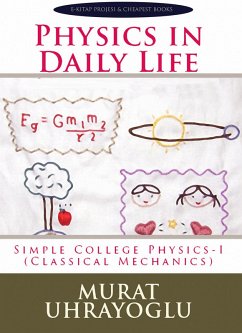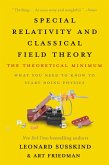Physics is all around us. It is in the electric light you turn on in the morning; the car you drive to work; your wristwatch, cell phone, CD player, radio, and that big plasma TV set you got for Christmas. It makes the stars shine every night and the sun shine every day, and it makes a baseball soar into the stands for a home run.Physics is the science of matter, energy, space, and time. It explains ordinary matter as combinations of a dozen fundamental particles (quarks and leptons), interacting through four fundamental forces. It describes the many forms of energysuch as kinetic energy, electrical energy, and massand the way energy can change from one form to another. It describes a malleable space-time and the way objects move through space and time.There are many fields of physics, for example: mechanics, electricity, heat, sound, light, condensed matter, atomic physics, nuclear physics, and elementary particle physics. Physics is the foundation of all the physical sciencessuch as chemistry, material science, and geologyand is important for many other fields of human endeavor: biology, medicine, computing, ice hockey, television the list goes on and on.A physicist is not some geek in a long white coat, working on some weird experiment. Physicists look and act like you or me. They work for research laboratories, universities, private companies, and government agencies. They teach, do research, and develop new technologies. They do experiments on mountaintops, in mines, and in earth orbit. They go to movies and play softball. Physicists are good at solving problemsall kinds of problems, from esoteric to mundane. How does a mirror reflect light? What holds an atom together? How fast does a rocket have to go to escape from earth? How can a worldwide team share data in real time? (Solving this last problem led physicists to invent the World Wide Web.)Mechanics is an important field of physics. Developed by Sir Isaac Newton in the 17th century, the laws of mechanics and the law of gravity successfully explained the orbits of the moon around the earth and the planets around the sun. They are valid over a large range of distances: from much less than the height of an apple tree to much more than the distance from the earth to the moon or the sun. Newtons laws are used to design cars, clocks, airplanes, earth satellites, bridges, buildingsjust about everything, it seems, except electronics.Electricity is another example of physics, one that you may experience as a spark when you touch a doorknob on a dry winter day. The electrical attraction of protons and electrons is the basis for chemistry. Magnetism is another force of nature, familiar to us from refrigerator magnets and compasses. In the 19th century, James Clerk Maxwell combined electricity and magnetism. He showed that light is an electromagnetic wave that travels through empty space. (Waves had always required a medium, for example, water is the medium for ocean waves.) Other electromagnetic waves besides light also travel through empty space; hence radio signals can reach us from a Mars explorer.
Dieser Download kann aus rechtlichen Gründen nur mit Rechnungsadresse in A, B, BG, CY, CZ, D, DK, EW, E, FIN, F, GR, H, IRL, I, LT, L, LR, M, NL, PL, P, R, S, SLO, SK ausgeliefert werden.









